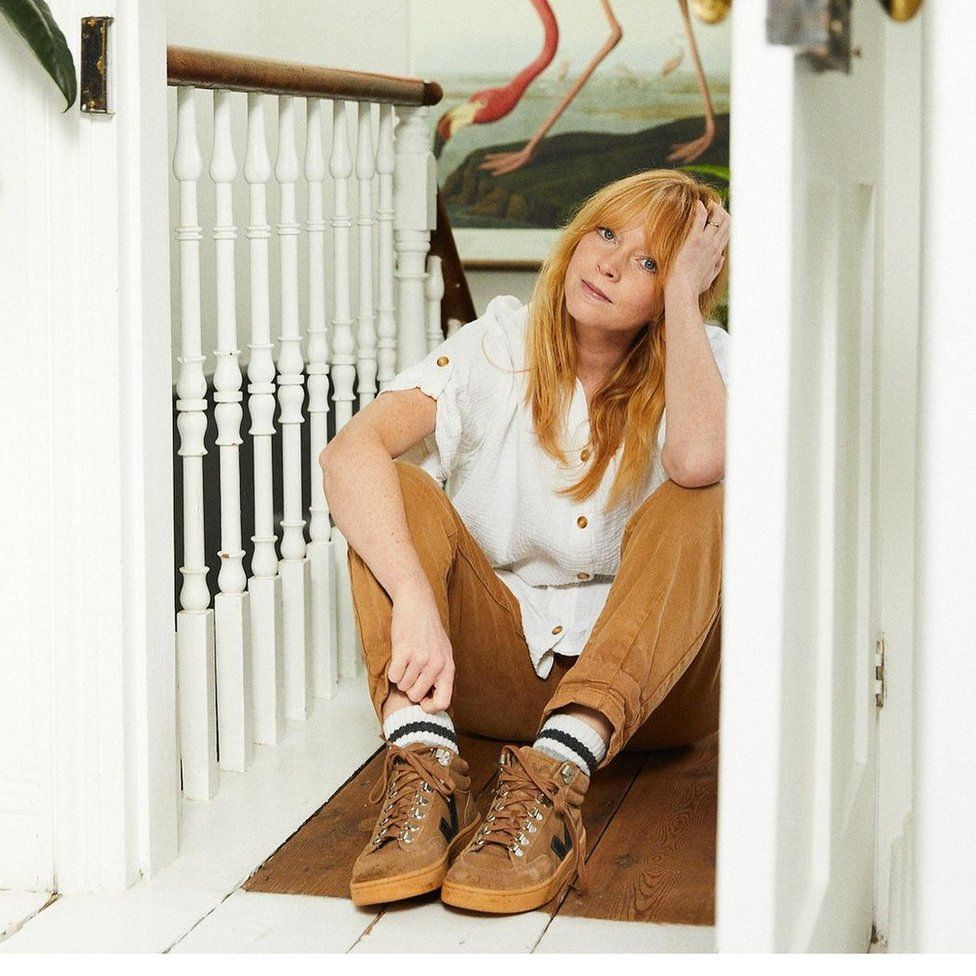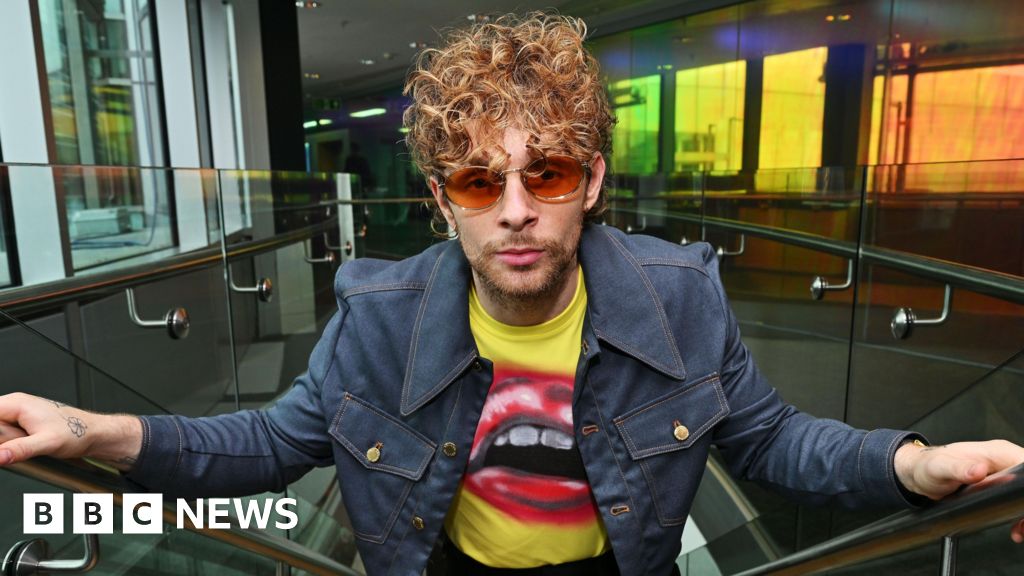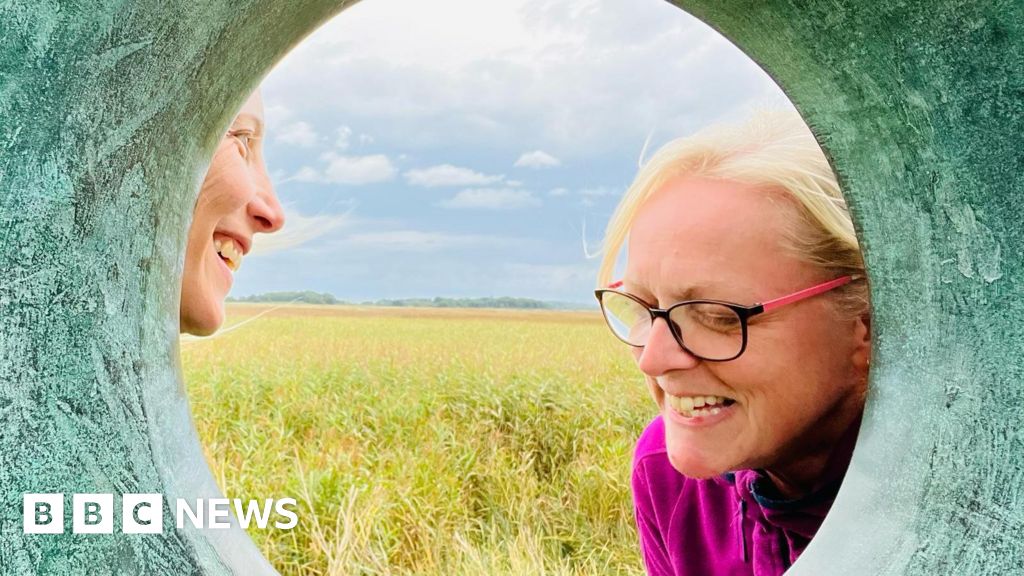ARTICLE AD BOX
 Image source, Josh Shinner
Image source, Josh Shinner
Lucy Rose: "When I think back, it's really vividly traumatic"
By Mark Savage
Music correspondent, BBC News
Shortly after giving birth to her first child, the singer-songwriter Lucy Rose went to lift her son out of his cot when she collapsed.
For what seemed like an eternity, she lay on the floor in agony with her back spasming.
Over the coming weeks, the pain only got worse.
"I couldn't pick up my baby, I couldn't push a pram, I couldn't even wash my hair," she tells the BBC.
If she needed to breastfeed, her husband Will had to lift the baby to her. When her parents persuaded her to go for a walk, she made it 100 yards before stopping and "begging to go back home".
At her NCT baby group, she asked other mothers if they'd experienced similar back pains. None of them had.
Her GP was no help, either.
"Every time I'd go in and it was the same thing," she says. "I'd be yelping in pain, then he'd prod my back and say, 'There's nothing wrong here - back pain is part and parcel of having a baby'.
"It got to the point where I was crying, begging for an MRI and the doctor told me I needed to dial it down and I was being over the top.
"It was really quite distressing."
Eventually, she went to a chiropractor. It was a big mistake.
"They cracked my back and it was the worst pain I've ever experienced," she says. "I was immediately like, 'That can't have been right, I'm going to be sick immediately'."
Looking back, she thinks that might have been the point where several of her vertebrae broke.
Image source, Getty Images
Image caption,The musician had planned to take a break to start a family, but wasn't prepared for what came next
Rose is telling me this story over a Zoom call from Spain, where she's taking a holiday to gather her strength before the release of her exquisite fifth album, This Ain't The Way You Go Out, on Friday.
She's just polished off an ice cream, and sits cross-legged on the floor, using the arm of a sofa to support her back (which is, thankfully, doing much better).
The 34-year-old entered the public eye as a backing vocalist for Bombay Bicycle Club, before striking out as a solo artist with albums like Work It Out and Like I Used To, straddling the worlds of acoustic folk and laid-back, adult pop.
One of the first artists to take advantage of Spotify's listener data, she noticed she was big in Latin America and, in 2016, travelled there alone, asking fans to book her gigs while staying in their spare rooms.
Her 2019 album, No Words Left, got the best reviews of her career. But two years later, housebound with pain, the very thought of music was too much to bear.
"I couldn't listen to anything," she says. "It wasn't a comfort and it wasn't going to help me. I was like, 'Please turn it off'."
After three months of trying to convince doctors that something was wrong, Rose's husband paid for a private MRI scan.
The results showed she had broken her back in eight places.
She assumed the health service would spring into action... and it did, just not in the way Rose had expected.
"The NHS lawyers got in contact with me first," she says.
"They emailed me saying, 'This has been raised as a potential negligence case, and we advise you to get a lawyer'."
"And I replied, 'Please, I don't want to sue the NHS. I just want to get better.'"
Eventually, they reached an agreement. Rose agreed not to pursue legal action, and the NHS reimbursed the cost of her MRI. Then treatment could begin.
Image source, Josh Shinner
Image caption,The singer's new album is inspired by the fight to be heard as she suffered from her rare form of osteoporosis
She was diagnosed with a rare form of pregnancy-associated osteoporosis (PAO), a condition that weakens the bones and can lead to fractures.
After a second scan, Rose was told her bone density was that of a 110-year-old.
"It's quite shocking, isn't it?" she says.
The condition, which is thought to affect just one in 100,000 women, was also severely isolating.
"Every movement made me think of it. Even breathing would make me think of it. But you feel like a broken record when you talk about it all the time.
"After a while you become more and more closed in."
Solace came from a Facebook support group and the Royal Osteoporosis Society, who put Rose in touch with a volunteer called Sarah Driver, who'd had the same condition.
"As soon as I got her number I texted it, and she called me immediately," Rose says. "She said, 'I can't talk now because I'm about to go out for dinner with my family but I promise you, you're going to get better'."
Sarah became Rose's lifeline, researching specialists and recommending treatment options. The pair still speak every day, and will meet for the first time at Rose's upcoming gig at London's Roundhouse.
"She was so integral to me being better, but she didn't even know me," Rose says. "I need to hug this woman, desperately."
The other key to her recovery was her newborn son.
"I felt very unlovable at the time because I was just so sad - but for Otis I could pull a stupid face or shake a rattle and he'd be happy and pleased I was there," she recalls.
"So that was a huge driving factor, having this baby that adores you. I was like, 'This is not going to stop me. I am getting better'."
Image source, Lucy Rose
Image caption,Rose is now well enough to enjoy normal activities with her son - "although the trampoline might be going too far"
Initially, mum and son just rolled around playing on the floor. Then, as Rose started a gruelling course of hydrotherapy, they'd spend hours floating together in the local pool.
By the time he was seven months old, they could clumsily navigate the house together, and often ended up at the piano in her music room.
"Otis is so joyful and his enthusiasm for life is addictive that, when I sat at the piano, I naturally looked for music that would make him feel more of those emotions," she recalls.
"And also, babies have such a small attention span that if I held a note for more than two seconds, he'd be like, 'I'm officially bored!'"
That combination of spontaneity and happiness flows through Rose's new album.
Inspired by the old school hip-hop and instrumental funk she listened to as her body healed, it's full of brushed breakbeats and choppy chord sequences that allow her beguiling vocals to soar.
The recent single Over When It's Over bounces along with jazzy energy; while Could You Help Me is restless and bright, even as Rose sings: "Now I'm learning how terribly lonely illness is".
The music was developed over a series of jam sessions in her house, then recorded in a two-and-a-half-day blast - "all freeform, no click track" - at Paul Weller's studio in Surrey.
"Playing music with my drummer and bass player was the beginning of me having confidence again," she says. "Finally, I wasn't that broken version of myself any more."
This YouTube post cannot be displayed in your browser. Please enable Javascript or try a different browser.View original content on YouTube
The BBC is not responsible for the content of external sites. YouTube content may contain adverts.
Skip youtube video by Lucy Rose
Allow YouTube content?
This article contains content provided by Google YouTube. We ask for your permission before anything is loaded, as they may be using cookies and other technologies. You may want to read Google’s cookie policy, external and privacy policy, external before accepting. To view this content choose ‘accept and continue’.
The BBC is not responsible for the content of external sites. YouTube content may contain adverts.
Energised, she sent the files to the London-based producer Kwes and asked him to work on the record.
Known for his work with progressive R&B stars like Solange Knowles and Sampha, he was surprised, but enthusiastic. One of the highlights of Rose's recovery was waiting for Kwes to email back the works-in-progress as he developed them.
"He just went to town and made everything sound ridiculous," she says.
Otis even gets a starring role, cooing along playfully to an improvised piano solo called Interlude II.
The joy of making the album still radiates off Rose and she's happy to say life has "mostly" returned to normal, thanks to a combination of physical therapy and medication.
When she looks back, it's hard to believe what she went through.
"It's almost like I blacked out a lot of it. And when I do think back, it's really vividly traumatic.
"I have visions of me trying to get into a hydrotherapy pool, and I could barely get my swimming costume on to start the session. It took me 20 minutes because I could hardly move my body in any capacity. It feels like a different life, entirely."
Even so, she has to be careful not to exacerbate the condition, which will impact her ability to tour. Her bones are so weak that her back muscles have to work harder to keep her upright, making gigs a fatiguing endurance test.
But it turns out that Rose has other concerns: Towards the end of our interview, she proudly shows off a thoroughly-developed baby bump.
"It's really exciting, because I thought this would never be possible again," she says. "But through the Facebook group, I learned that women with this condition have gone on to have several children safely, as long as they have the correct treatment."
Her second baby, a girl, is due in June - and Rose can't wait.
"I shouldn't say this, but I'm really hoping for the normal, hard experience. I hope I'm moaning about sleepless nights and doing the laundry and checking poo charts.
"I'll be immensely joyful if those can be my only worries."

 1 year ago
39
1 year ago
39








 English (US) ·
English (US) ·